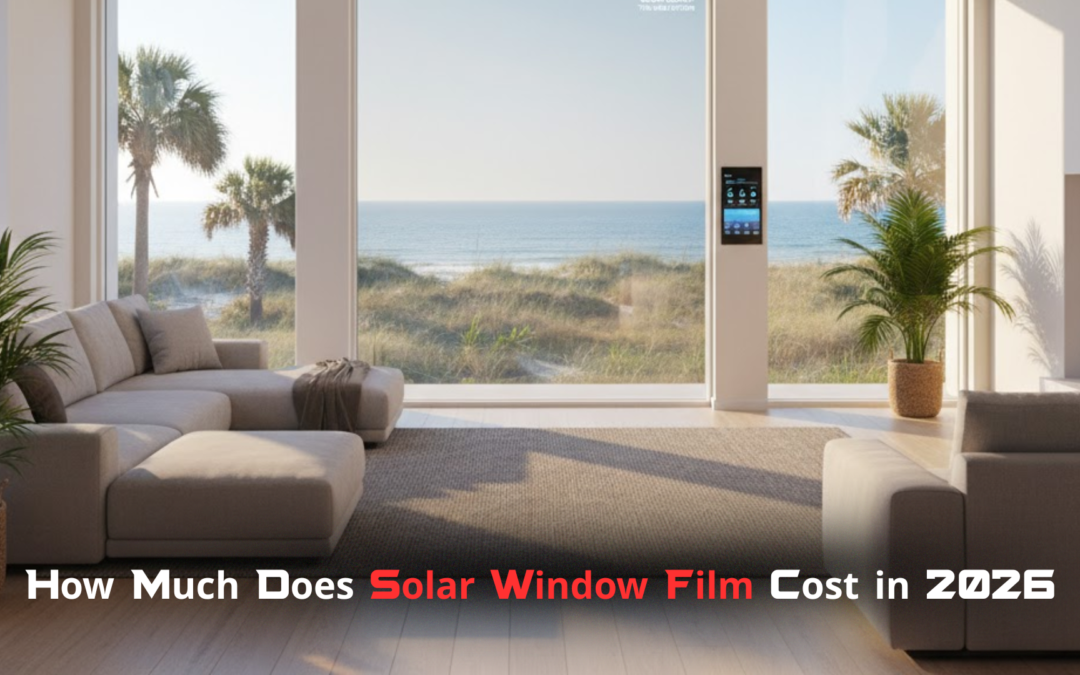For property owners, managing energy costs and protecting building interiors from sun damage are common considerations. Solar window film is a product designed to address these issues by reducing the amount of solar energy that enters through windows.
This guide provides an overview of the potential costs associated with solar window film, details the different types of film technology available, and examines the factors that influence pricing and performance.
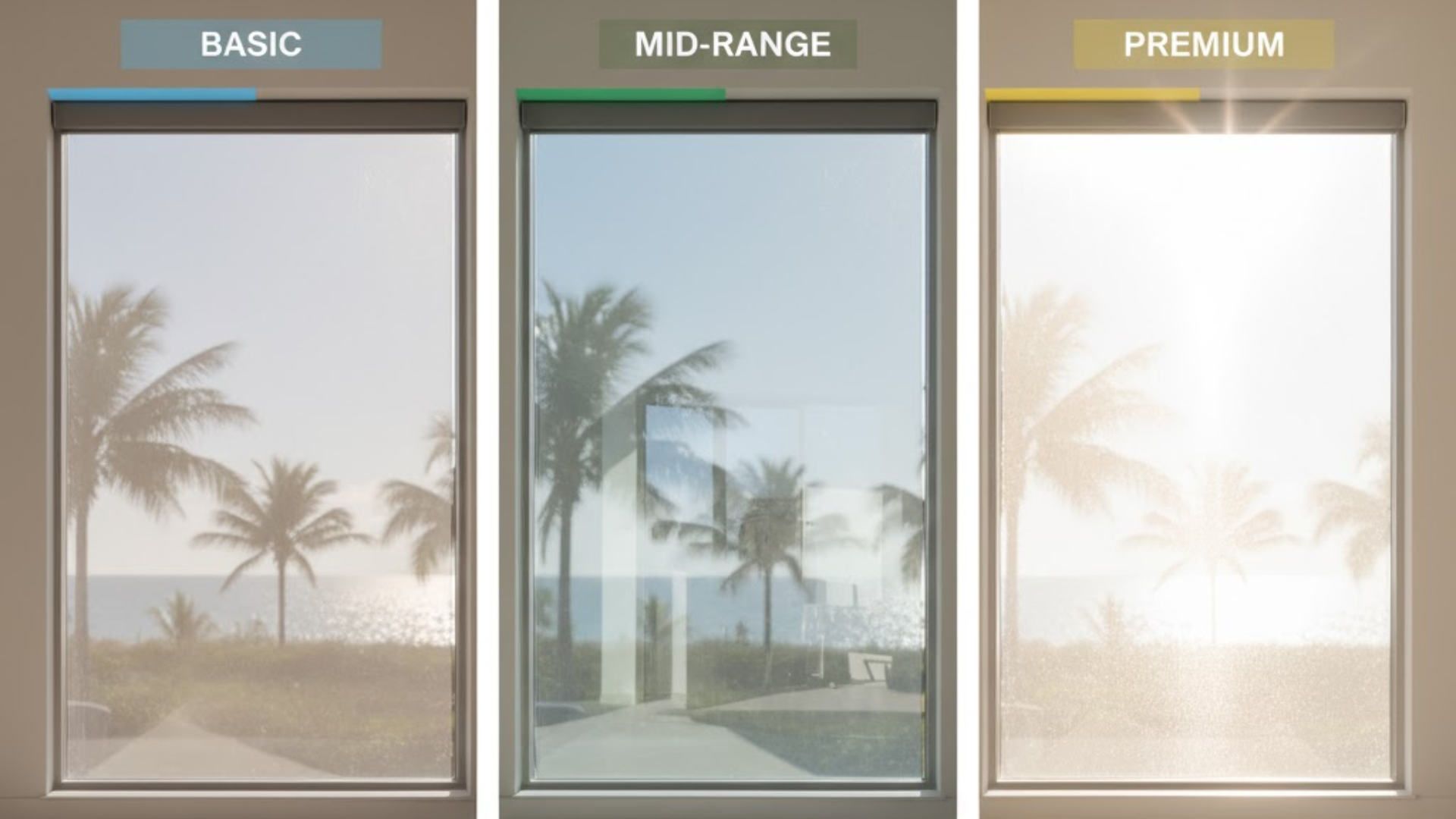
An Overview of Potential Costs
The cost of solar window film is typically measured per square foot and includes both the material and professional installation. Market pricing can be segmented into general tiers based on the technology and performance of the film. While prices fluctuate based on economic conditions, the following tiers provide a general cost framework:
- Economy Tier (e.g., Dyed Films): Approximately $5.50 – $7.50 per square foot. This tier is generally suited for basic glare and UV reduction.
- Mid-Range Tier (e.g., Metallic/Carbon Films): Approximately $7.50 – $11.00 per square foot. This tier often provides a balance of heat rejection and durability.
- Premium Tier (e.g., Ceramic/Spectrally Selective Films): Approximately $11.00 – $16.00+ per square foot. This tier includes advanced films designed for high heat rejection with minimal impact on visible light.
These price ranges serve as an estimate of the costs. Actual costs will vary based on location, installer, and specific project requirements.

What’s Driving the Numbers? Key Factors Influencing 2026 Pricing
The cost of any home improvement project is shaped by broader economic forces. For 2026, the price of professional window film installation will be influenced by a few key factors:
- Material and Manufacturing Costs: Persistent global inflation, although moderating, continues to impact the cost of raw materials, such as petroleum (for the film’s polyester base), and specialty metals and ceramics used in advanced films.
- Skilled Labor Rates: There is a sustained high demand for skilled tradespeople in the construction and home improvement sectors. Professional window film installation is a meticulous craft that requires training and experience to achieve a flawless, long-lasting result. This professional premium ensures your warranty is protected and the film performs optimally for years to come.
- Growing Consumer Demand: With Florida’s high energy costs and a growing awareness of energy efficiency, more property owners are turning to solar film. This robust demand supports a healthy, competitive local market, which helps keep pricing fair for consumers.
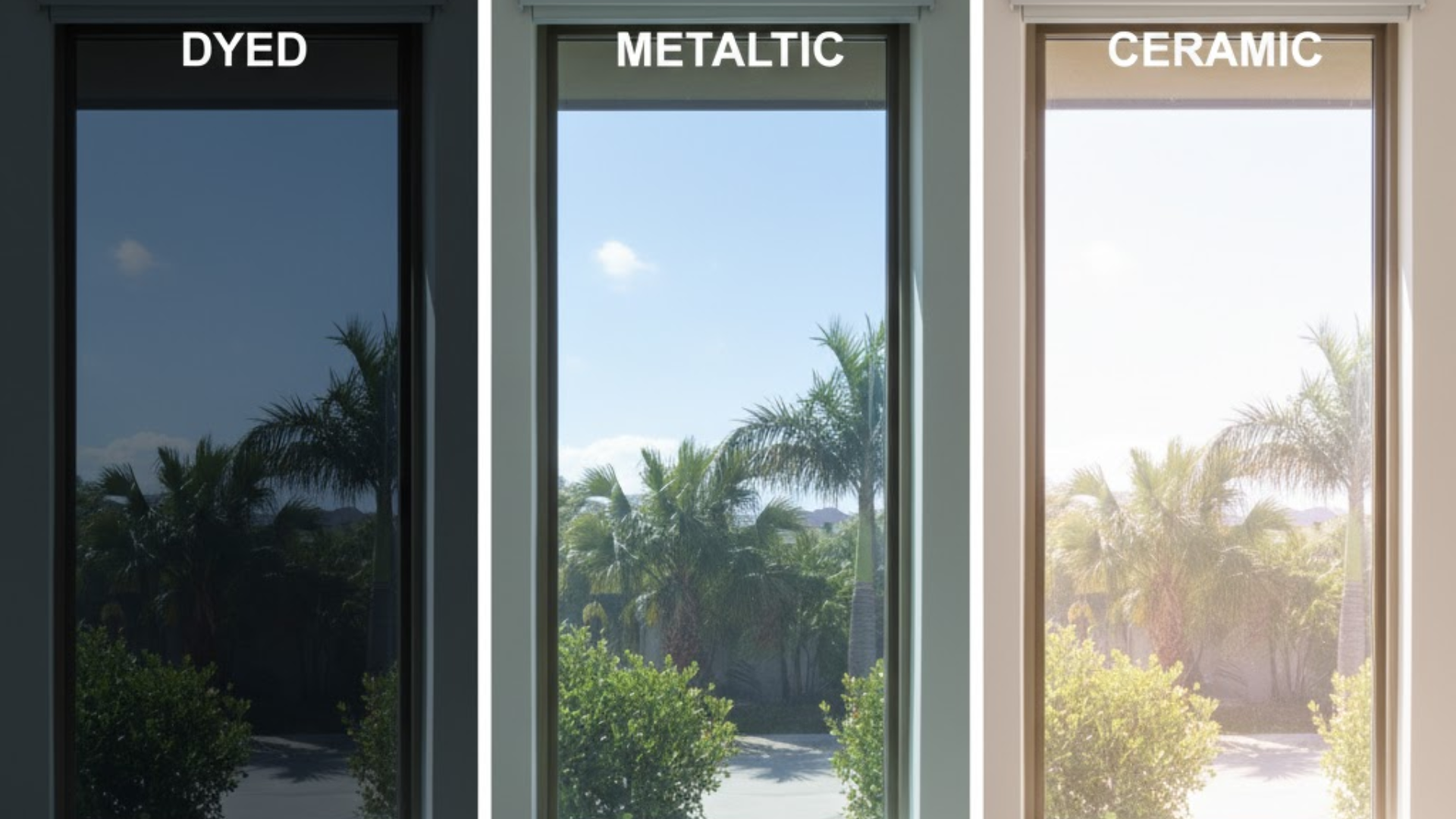
Beyond the Price Tag: Understanding the Different Types of Window Tint
Choosing the right solar film for windows means matching the technology to your specific needs and budget. Not all films are created equal, and understanding the differences is key to making an informed decision.
Dyed Window Film (The Economy Choice)
Dyed film contains absorptive dyes that absorb solar heat. It is effective at reducing glare and blocks the majority of UV rays. Its heat rejection capabilities are generally lower than other types, and some dyed films may be susceptible to discoloration over time.
Metallic & Reflective Window Film (The Performance Balance)
This category of film incorporates microscopic metallic particles that reflect solar energy. This makes it effective for heat rejection and provides a reflective, mirror-like appearance from the exterior, which can increase daytime privacy. Potential drawbacks include possible interference with cellular or Wi-Fi signals and an aesthetic that may not suit all properties.
Ceramic & Spectrally Selective Film (The Premium Solution)
This technology uses nano-ceramic particles that are non-metallic and non-conductive. These films are engineered to be “spectrally selective,” meaning they target and reject infrared radiation (heat) while allowing a high percentage of visible light to pass through.
Key characteristics include:
- High Heat Rejection: Can block a significant amount of solar heat without requiring a dark tint.
- Visual Clarity: Maintains clear views and allows for natural light.
- No Signal Interference: The metal-free construction does not interfere with electronic signals.
- Durability: Generally considered among the most durable and long-lasting film types.
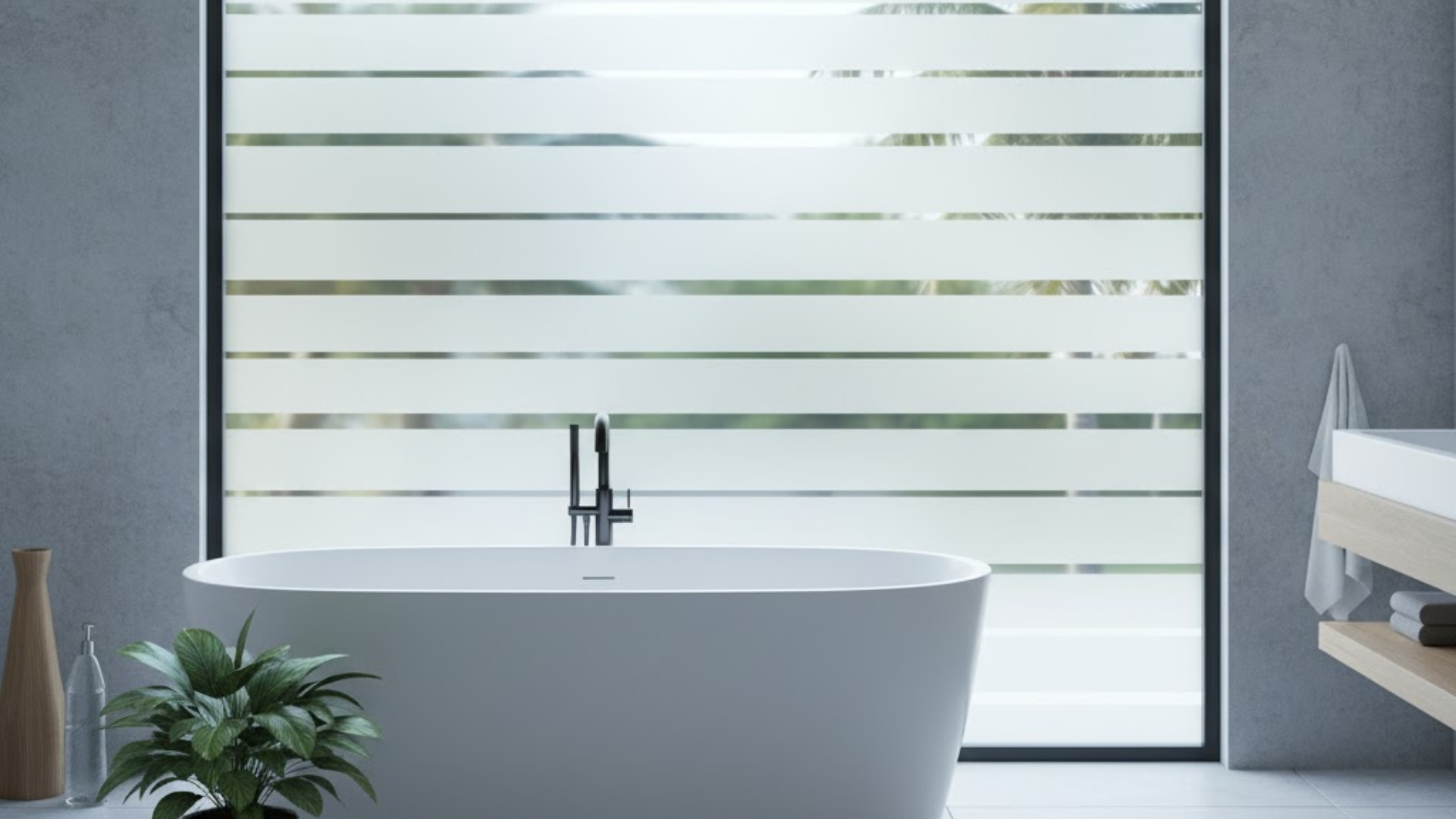
Specialty Films: Security and Decorative Options
Beyond solar control, modern film technology offers solutions for other needs.
- Security Film for Windows: This is a much thicker, stronger type of film designed to hold glass together upon impact. While not “burglar-proof,” security film for windows creates a formidable barrier that significantly slows down intruders, protects occupants from dangerous flying shards during storms or accidents, and mitigates blast hazards. It’s an invisible layer of powerful protection.
- Decorative & Frosted Window Film: For areas where privacy or style is the primary goal, frosted window film can replicate the look of etched or sandblasted glass at a fraction of the cost. It’s perfect for bathrooms, conference rooms, and front doors.
| Film Type | Heat Rejection | Appearance | Signal Interference | 2026 Projected Cost (per sq. ft.) |
|---|---|---|---|---|
| Dyed | Good | Tinted, can fade over time | No | $5.50 – $7.50 |
| Metallic | Excellent | Reflective/Mirrored | Yes | $7.50 – $11.00 |
| Ceramic | Superior | Clear and non-reflective | No | $11.00 – $16.00+ |
| Security | Varies | Optically clear | No | Varies by thickness |
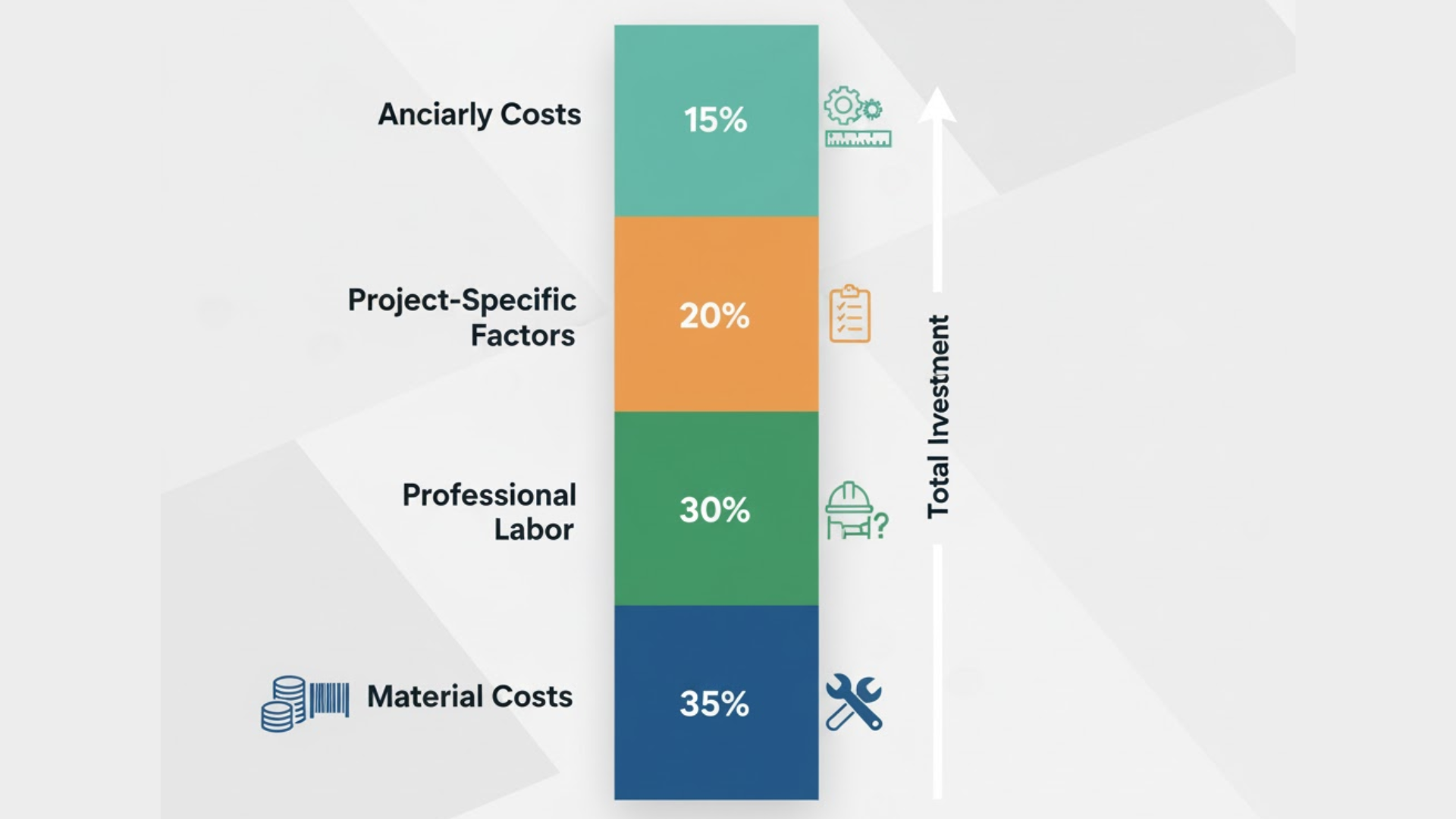
Deconstructing Your Quote: A Line-by-Line Cost Breakdown
When you receive a quote from a professional installer, the price is a composite of several factors. Here’s what you’re paying for:
- Material Costs: This refers to the cost of the film itself and is the largest variable, determined by the technology tier you select (Dyed, Metallic, or Ceramic).
- Professional Labor: This typically accounts for 30-50% of the total cost and is absolutely critical. A professional ensures the glass is surgically clean, the film is cut precisely, and the application is flawless, free of bubbles and contaminants. This expertise is what guarantees the film’s longevity and warranty.
- Project-Specific Factors: The complexity of your project can affect labor costs. Hard-to-reach windows (such as skylights and second-story windows), irregularly shaped windows (like arches and circles), and the total number of panes all influence the time and skill required.
- Ancillary Costs: If you have old, failing film that needs to be removed, this will be a separate line item, as the process is labor-intensive and requires additional time and effort.
The Real Question: Is Solar Film a Good Investment in Florida?
Focusing solely on the upfront cost overlooks the broader perspective. The more important question is about the return on that investment, and in Jacksonville, the answer is a resounding yes.
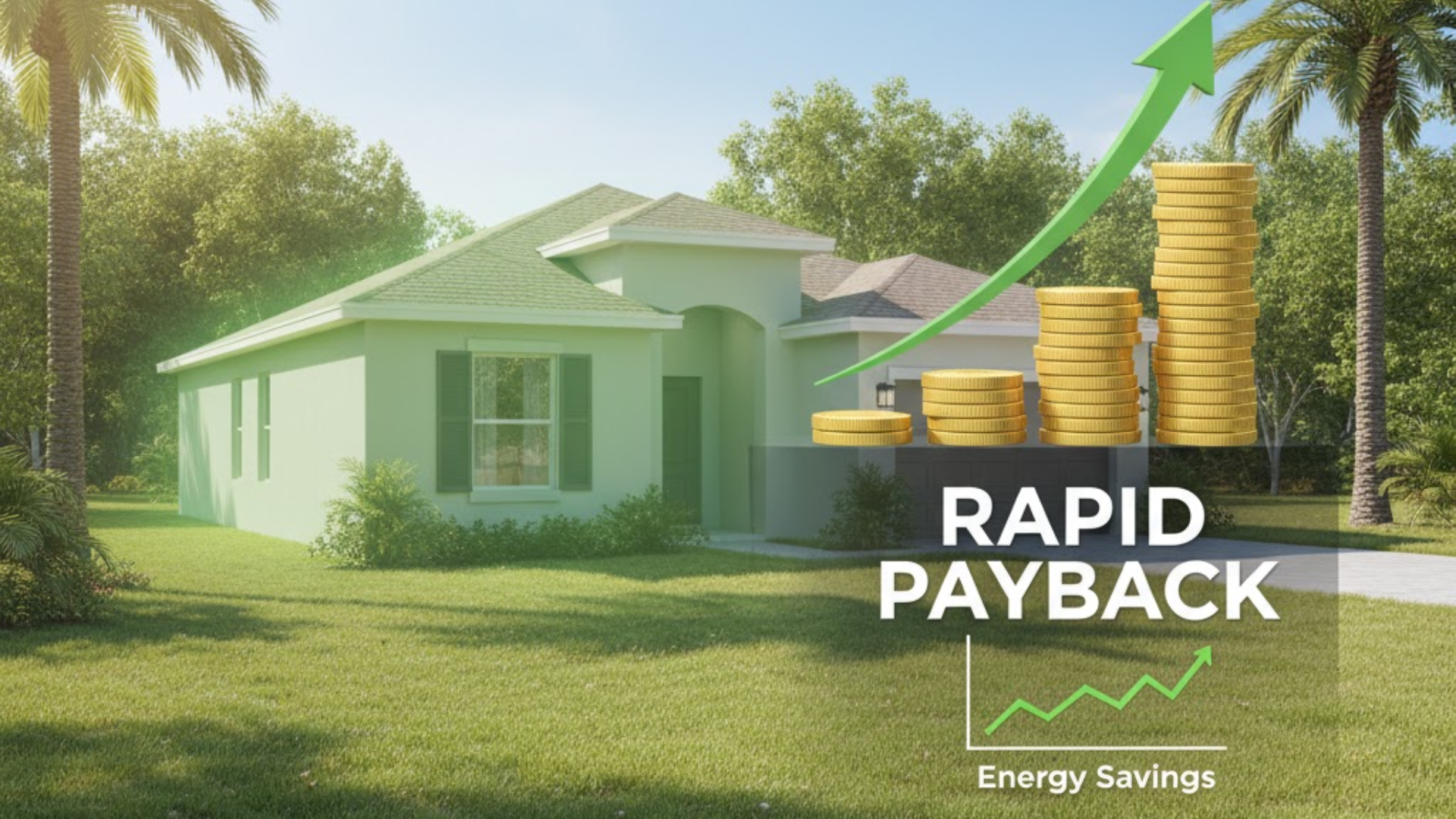
Calculating Your Return on Investment (ROI)
Independent studies have shown that in Florida’s climate, solar window film delivers more energy savings per dollar spent than attic insulation or even HVAC upgrades.
- Energy Savings: High-performance film can reject up to 79% of solar heat, reducing the strain on your AC system. This can slash your cooling costs by up to 30%, saving you an estimated $1.00 to $2.00 per square foot of film per year.
- Rapid Payback: With these substantial savings, the typical payback period for a professional installation is just 3 to 5 years.
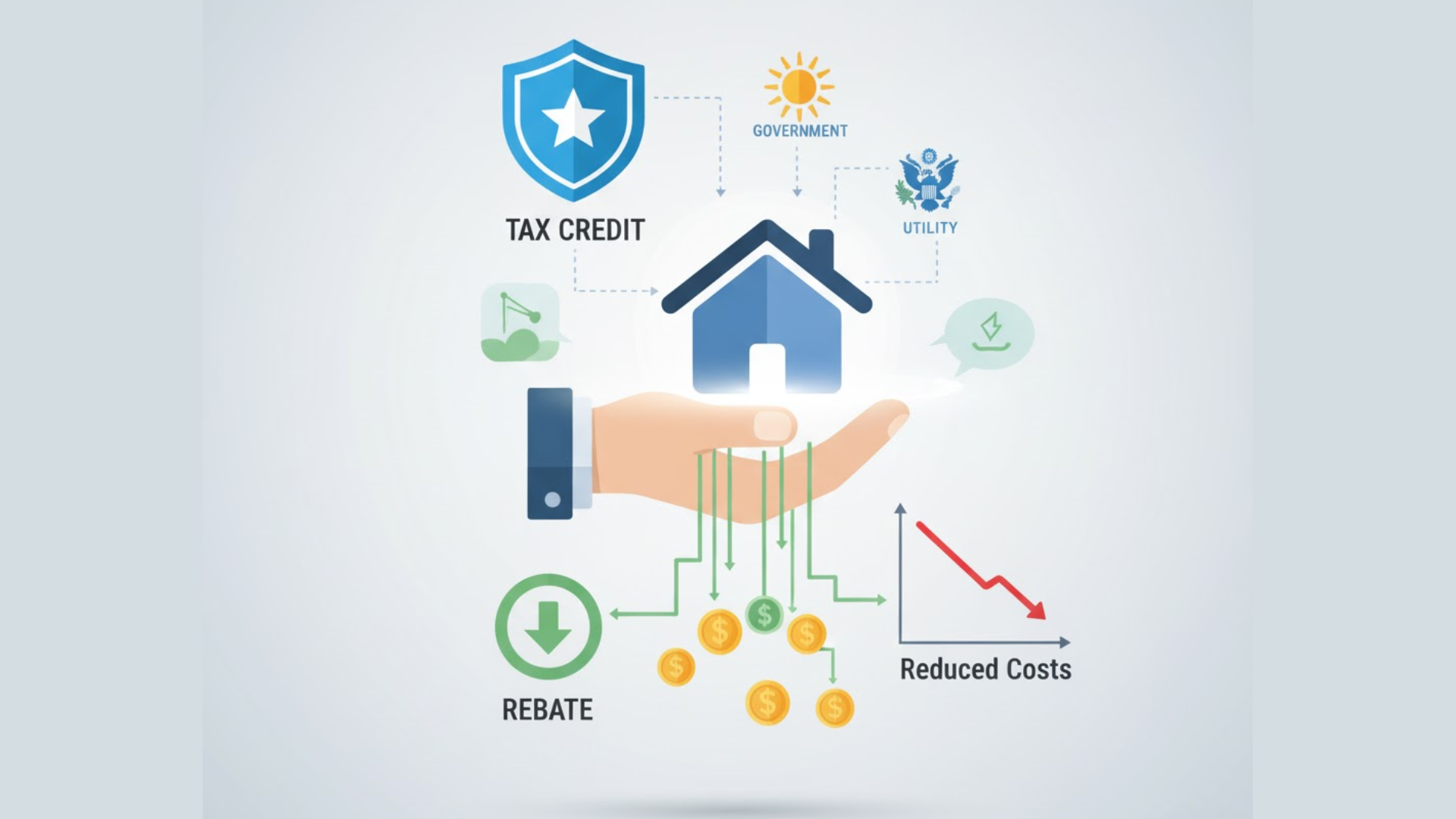
Financial Incentives That Slash Your Upfront Cost
The ROI is accelerated by valuable financial incentives that directly reduce your net cost:
- Federal Energy Efficient Home Improvement Credit: You can claim an annual tax credit of up to 30% of the material cost of your window film, with a maximum credit of $600 per year.
- Local Utility Rebates: Beaches Energy Services offers customers a direct cash rebate of up to $100 for qualifying installations.
This “stacking” of massive energy savings with federal and local incentives makes the financial case for window film in Jacksonville incredibly compelling.
Added Value Beyond Energy Bills
The benefits don’t stop at your bank account:
- UV Protection: Blocks over 99% of UV rays, preventing your expensive hardwood floors, furniture, rugs, and artwork from fading.
- Glare Reduction: Creates a more comfortable living and working space, making it easier to watch TV or work on a computer.
- Increased Property Value: Energy efficiency is a highly desirable feature for homebuyers. Homes with documented energy-saving upgrades often sell faster and for a premium. This applies to both residential projects and commercial window tint applications, which can increase the value and appeal of a business property.
FAQs
Q1. How long does solar window film last?
Ans: The lifespan of window film depends entirely on the quality. Economy dyed films may last 5-10 years, while high-performance metallic and premium ceramic films are incredibly durable and can last for 20 years or more, often backed by a lifetime residential warranty.
Q2. Will window film make my house too dark?
Ans: Not at all! This is a common misconception. Modern films, especially premium ceramic and spectrally selective types, are designed to block heat (infrared light) and UV light, not necessarily visible light. You can choose a film with high visible light transmission (VLT) that provides exceptional heat rejection while being nearly invisible on the glass.
Q3. Can I install solar film myself to save money?
Ans: While DIY kits are available, professional installation is strongly recommended. A professional application ensures a flawless, bubble-free finish and is crucial for activating the manufacturer’s warranty, which often covers both the film and the glass against thermal fracture. The skill of the installer is just as important as the quality of the film.
Q4. Will window film void my window manufacturer’s warranty?
Ans: This is a valid concern, but reputable film manufacturers have solved this problem. Leading brands offer their own comprehensive warranties, designed to match or supersede your existing window warranty in the event of a failure caused by the film. This protection is contingent on the film being installed by a certified professional.
Q5. Is reflective window film the best for privacy?
Ans: Reflective window film is excellent for daytime privacy, creating a mirror-like effect on the exterior that prevents people from seeing in. However, this effect works based on the light differential. At night, when it’s light inside and dark outside, the effect reverses. For 24/7 privacy, a decorative option like frosted window film is a better solution.

